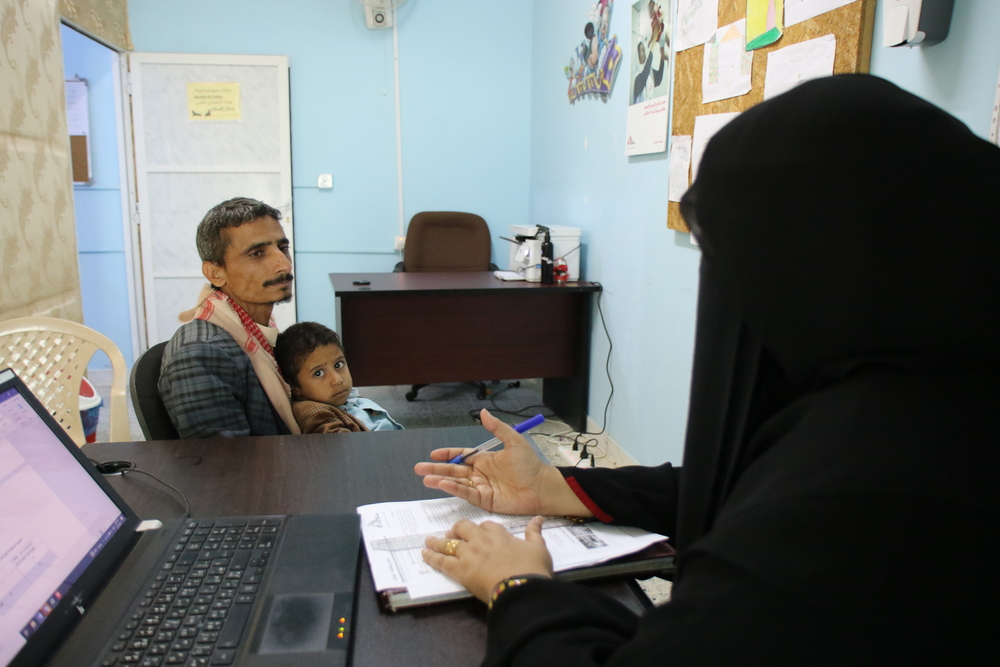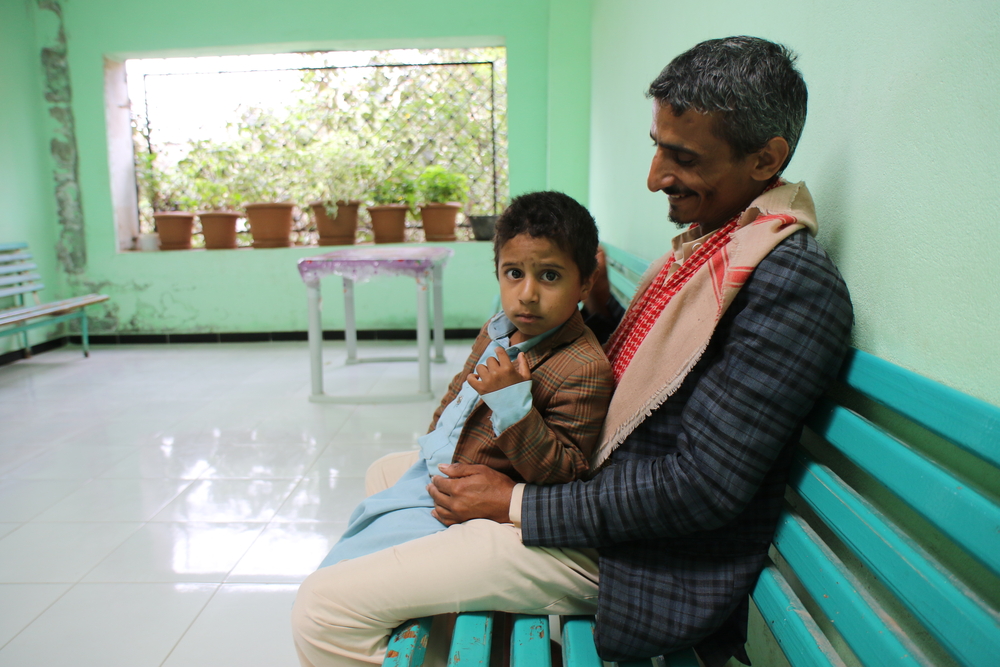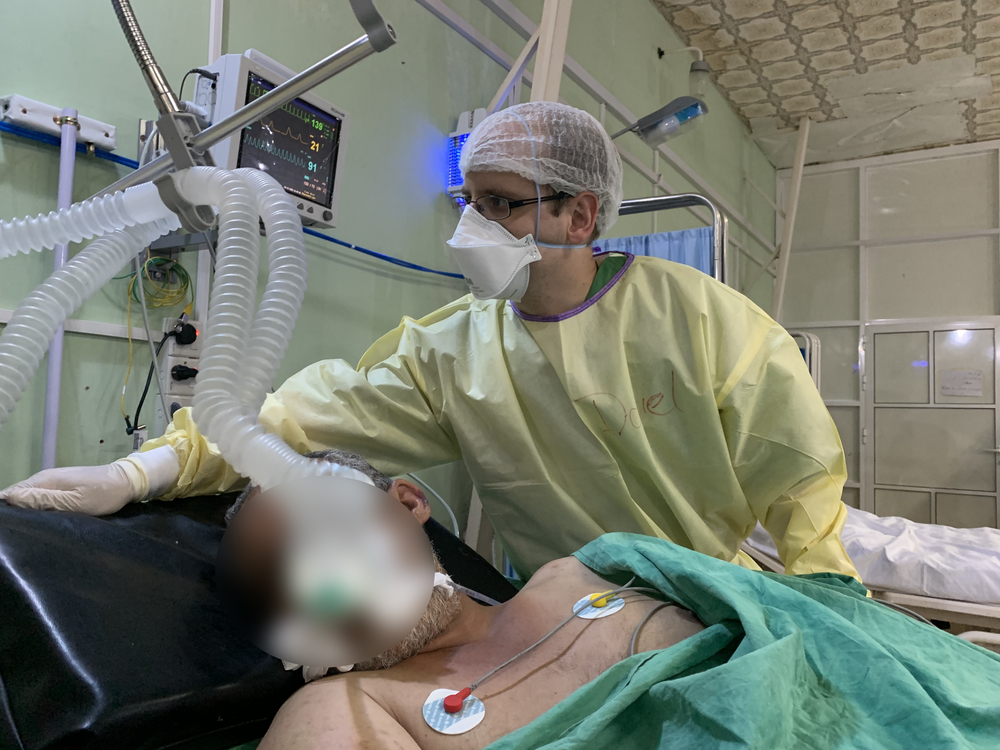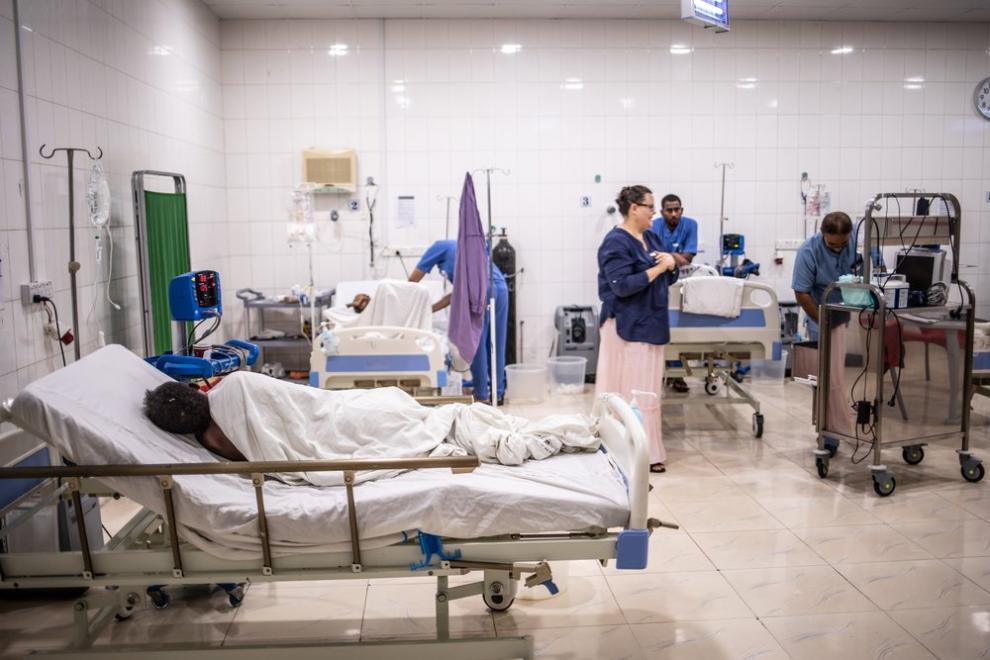Why are there so many patients suffering from mental health conditions?
Mental wellbeing is very much affected by external factors. The more intense someone’s circumstances are, the more their wellbeing will be impacted. Living in a context of war means being exposed to constant stress for a long period of time. Armed conflict in Yemen has not only affected people’s physical health: it has reduced their access to healthcare, education, and food, it restricts their freedom of movement and denies them the freedom to express themselves. This creates serious mental health disorders.
Patients with mental health issues in Yemen are no different to others experiencing conflict around the world. But 45 per cent of the patients we see in the MSF mental health clinic are severe cases. The number of severe cases is astonishingly high, especially taking into account that worldwide, and even in conflict settings, the number of patients presenting severe mental health conditions should not exceed 5.1 per cent of the total cases, as defined by the World Health Organization in 2019. The lack of services in the area of Hajjah city and for several kilometres around it means that all severe cases in the area are directed towards our services, which may explain the numbers.
How many people need medical support?
Authorities have identified more than 9,000 patients in the Hajjah area who are in need of mental health services. The actual number is probably even higher, since mental health needs tend to be underestimated. People often come to our clinic from distances of more than 100 kilometres to access our services, and it indicates the high needs across the country.
Because of the war, the population in Hajjah is accustomed to high levels of violence. People here are very resilient and their tolerance to adverse circumstances is very high. This means that they arrive at mental health consultations only if a mental health issue has become very obvious and disruptive to the patient and his loved ones. For instance, a family might only become alarmed and seek help when a patient is at the point of becoming agitated or paranoid and is threatening to hurt others.
The war and the lack of mental health services in the area has increased the prevalence of these sorts of conditions. In March, June, and July (for example) of this year, more than half of new patients seeking help at the MSF clinic presented with severe mental health disorders. The treatment of severe mental health conditions is very challenging here. In Yemen the first option for people with mental health symptoms is to seek spiritual treatment. The consequence of this is that sometimes, by the time that patients arrive at our clinic, they have been exposed to ineffective and sometimes harmful practices that exacerbate their symptoms. Seeking spiritual treatment instead of going to a health facility indicates the lack of mental health awareness among the population, another pertinent factor in this context.








